
The best brain foods for kids and growing minds
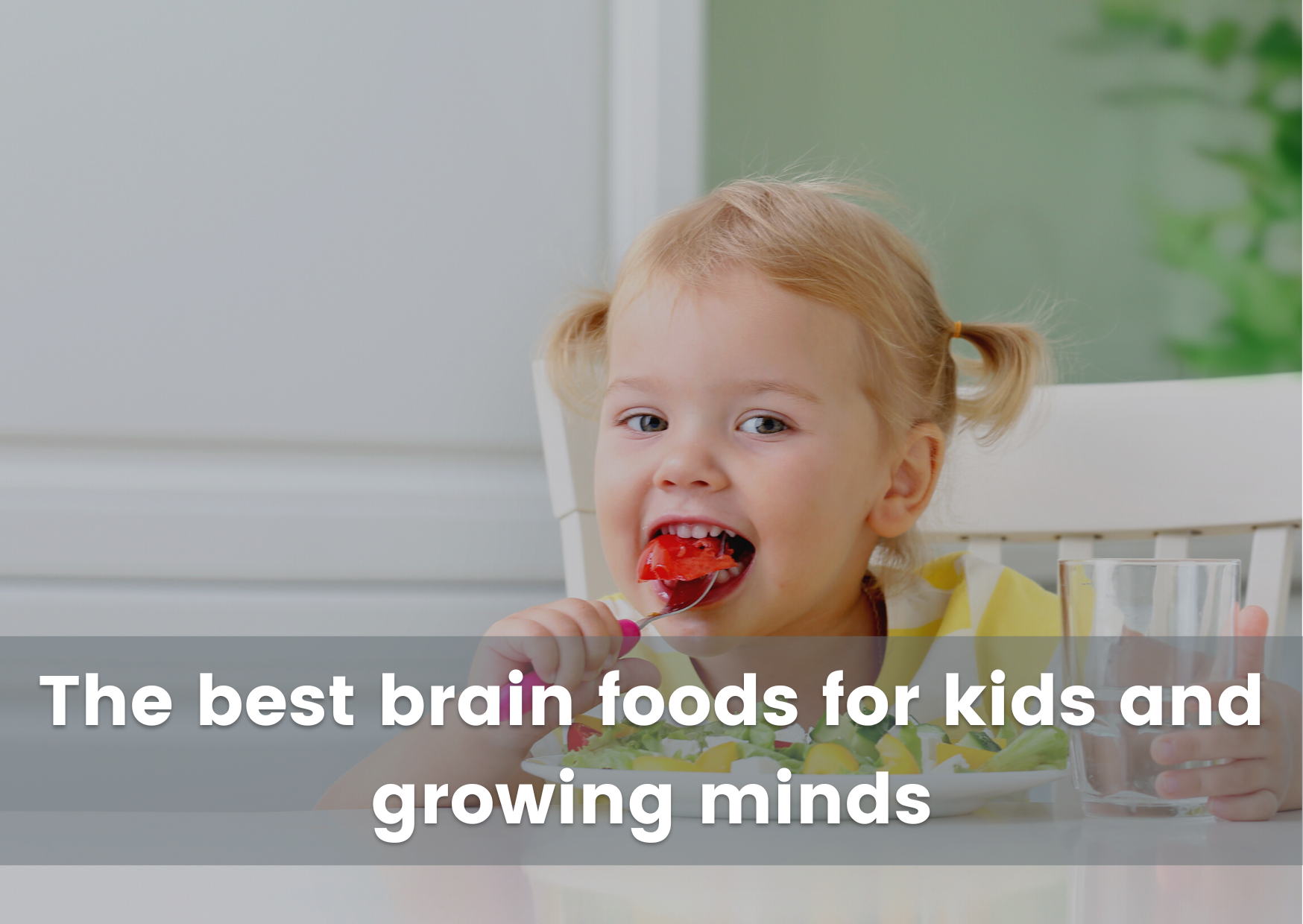
The best brain foods for kids and growing minds
Article at a Glance
|
Our brain is the first organ in our body to absorb nutrients from food. This is the same for children. So what you feed your children as they grow up will have an impact on how their brain develops. If you want the best for your child and their development then you should make sure they are eating foods that will positively help with that. Here are a few foods that provide the necessary nutrients for proper brain development and growth.
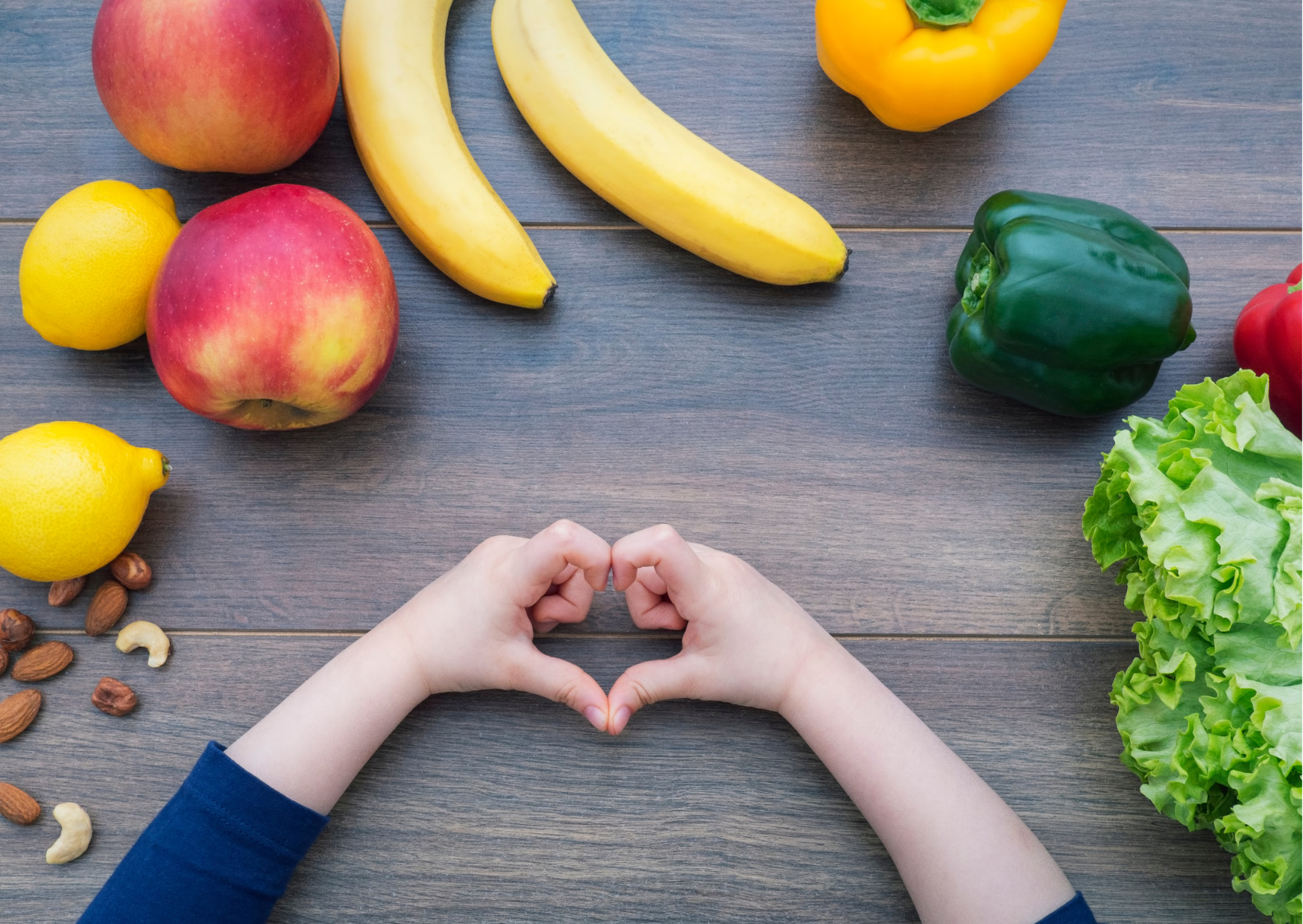
1. Berries
Berries have a bunch of healthy nutrients for growing minds. Such as vitamin C and antioxidants that help improve memory. Berry seeds even have omega-3 fats that are important for proper brain function.
The darker the colour of the berries, the more nutritious they are. So grab a few strawberries, blueberries, blackberries, and even cherries to enjoy with your children. [1]
2. Leafy Green Vegetables
Leafy green vegetables such as spinach, kale, and lettuce are good sources of folate and other vitamins that are important for the brain.
For example, kale is full of antioxidants that are necessary for the growth of new brain cells. Both kale and spinach are also known to lower the odds of dementia later in life.
Most children will not feel excited by the idea of leafy green vegetables, but there are many creative ways that you can get your child to change their mind and have some.
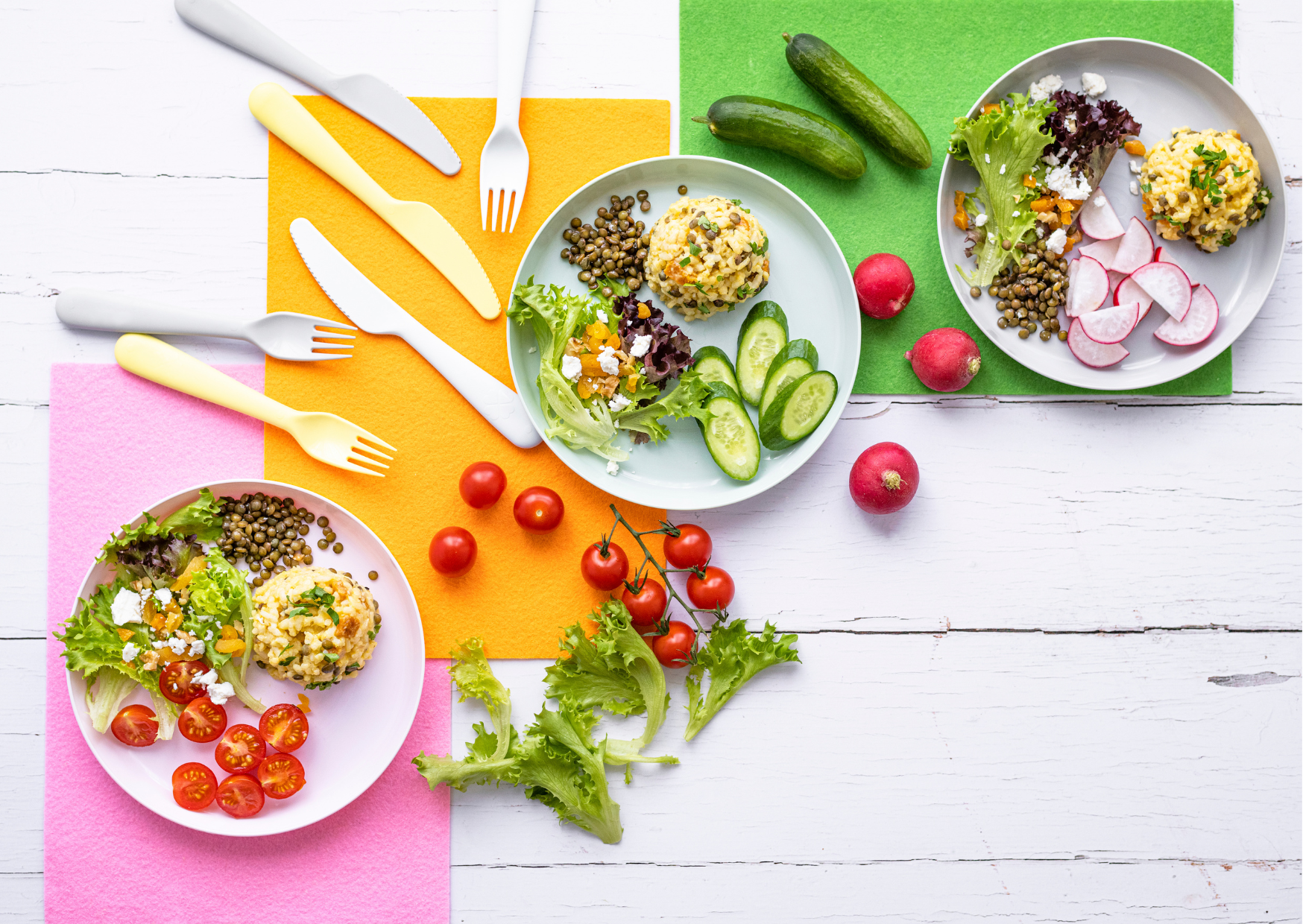
3. Cocoa
Did you know that cocoa is good for the brain? Cocoa contains theobromine and caffeine that improve the speed of neurotransmitters in the brain, helping in cognitive development. [2]
Cocoa also triggers the production of dopamine, also known as the “happy hormone”, which helps give your child a less stressful and tense day. Giving your child a bit of cocoa on days that they may feel more stressed or when they come home feeling unhappy, will result in a bit more relaxation and calmness. [2]There are healthier options for parents who are feeling a bit unsure if they should give their children chocolate. You could encourage your kids to eat dark chocolate as it contains a higher percentage of cocoa than most store-bought chocolate.[2]
4. Eggs
A favourite of most children is eggs. Eggs have protein and a bunch of healthy vitamins and nutrients. Egg yolks also contain a nutrient known as choline. [3]
According to studies, choline helps in memory function and development. The body uses choline to make neurotransmitters, which boost and balance signals in the brain. Interestingly children who have eggs early in their life have a higher IQ score. [4]
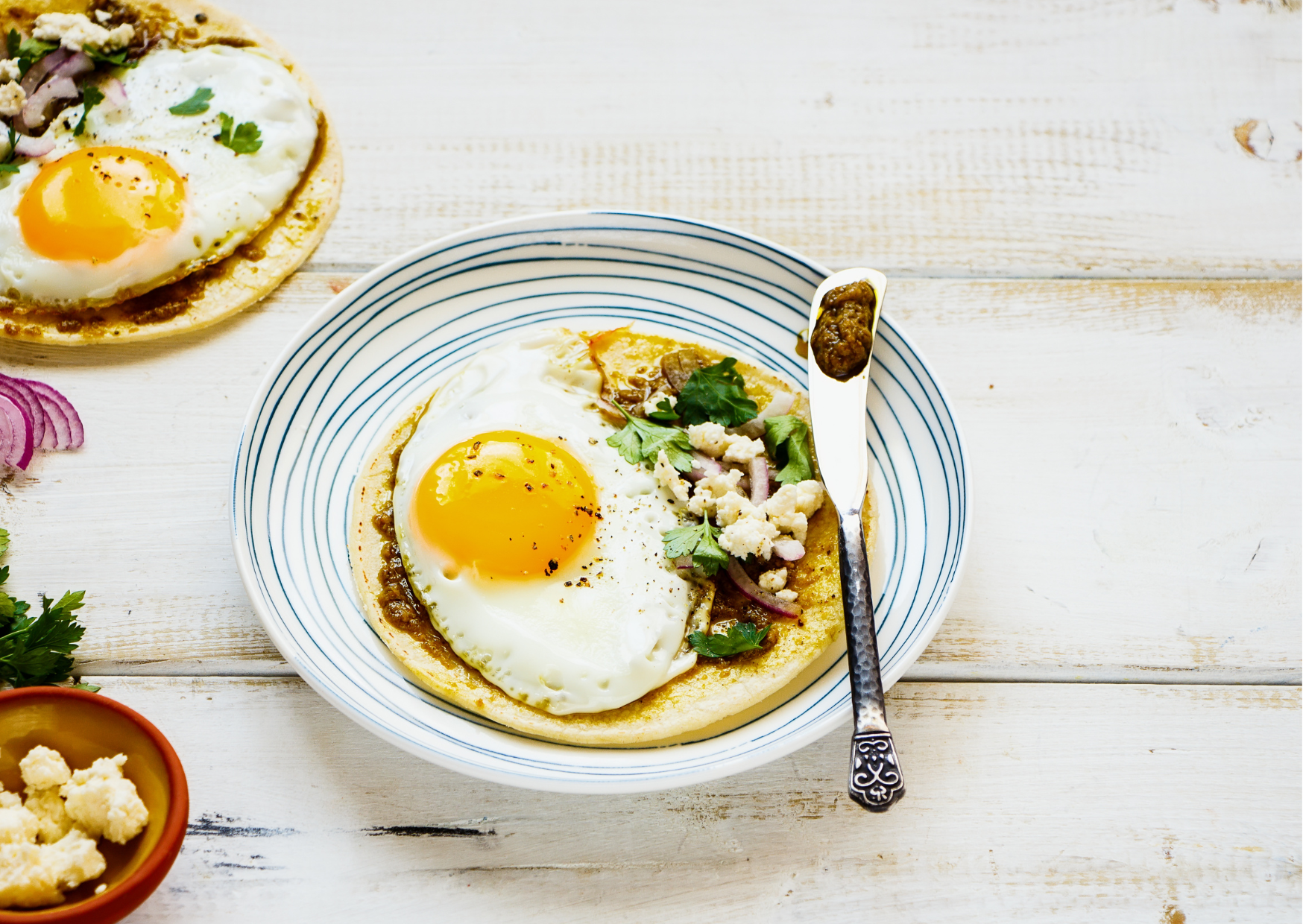
5. Colourful Veggies
Carrots, tomatoes, pumpkins, sweet potatoes, etc are considered colourful vegetables. These vegetables protect the body and the brain against radical damage. Colourful vegetables with the richest colours tend to be the best source of antioxidants. They also help in the maintenance, repair, and development of DNA. A smart way to manage the intake your children have of colourful vegetables is by making sure to follow a rainbow method. Breaking down the vegetables into colour groups of red, orange, yellow, green and purple will be an easy way to get your children excited about vegetables. [5]
6.Yoghurt
Yoghurt is a healthy option for children. Full-fat milk yoghurt is good for babies as it contains fats that aid in brain development.
Greek yoghurt keeps the brain cells in a perfect state for sending and receiving information since it has more protein than regular yoghurt.
You can reduce the sugar intake of your child by giving them unflavoured yoghurt. For an extra flavour to help them enjoy it you can always add fruits and honey. [4]
7. Seeds, Nuts & Nut Butter
A way to improve your child's diet and mood is by feeding them seeds and nuts. [4] Seeds and nuts contain healthy fats like omega-3 which also protect the brain cells from oxidative damage. Seeds contain minerals such as magnesium, and iron, which assist in nerve signalling and can cause impaired brain function if you have a deficiency. [4] Nuts and nut butter contain a healthy dose of fibre, vitamin E, and antioxidants. These improve cognitive brain function and protect nerve membranes. [6]
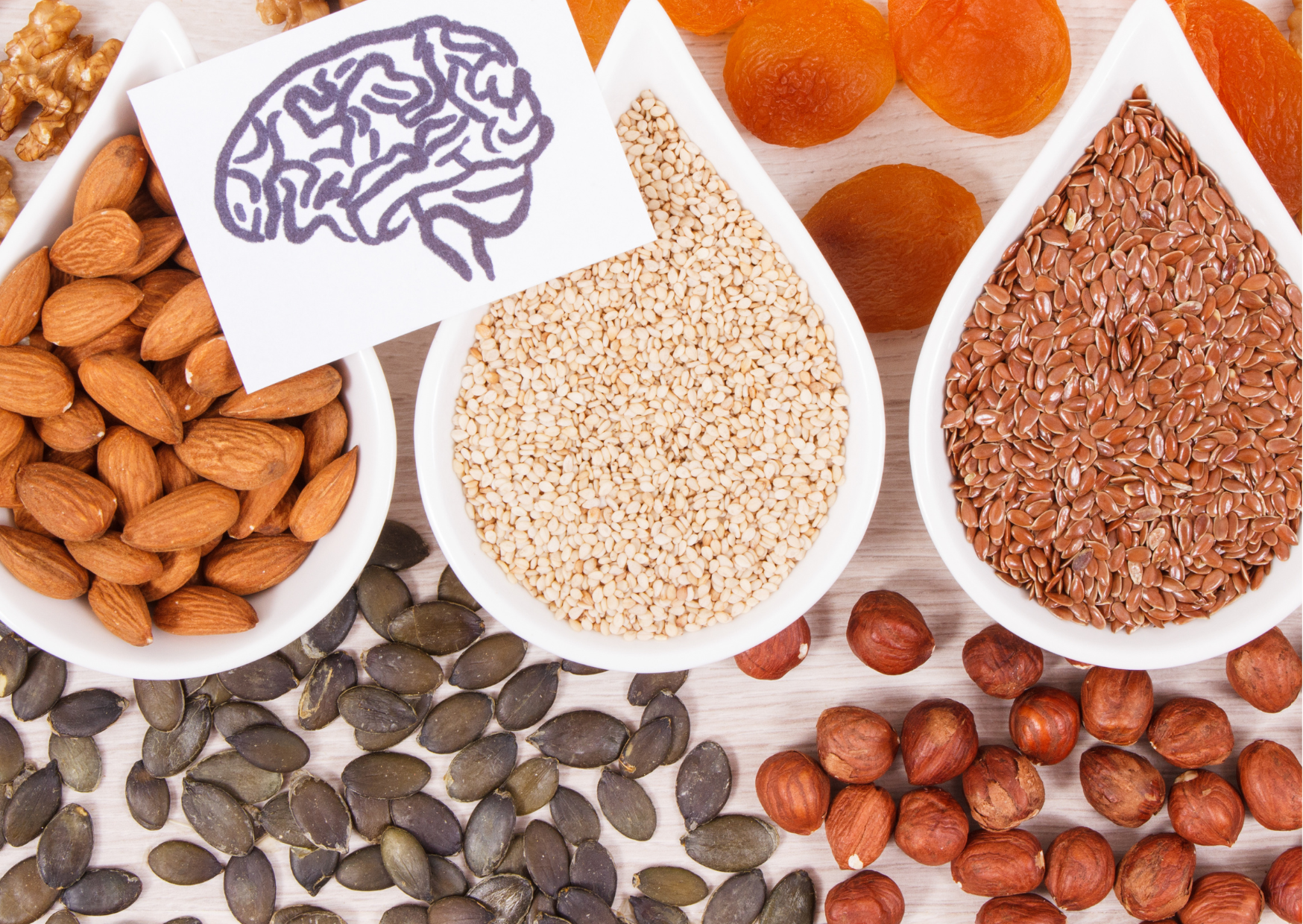
8. Seafood & Fish
Omega-3 fatty acids are essential for proper brain development. They protect the brain from memory loss and declining mental skills.
Fish such as salmon, which are fatty fish, are a good source of omega-3. Studies have shown that kids who consume fatty acids have sharper minds and generally do better at mental skills tests. [1]
9. Beans
Beans contain plenty of minerals, protein, and complex carbohydrates necessary for the proper growth and development of children's brains.
Kidney and pinto beans are the best as they contain omega-3 fatty acids more than any other bean variety. [1]
When a child consumes beans their overall gut health increases and they will be less likely to consume unhealthy sugary treats as their bodies will feel satiated. [7]
10. Water
Water is the best thing for anybody to consume. Children who drink water more perform better on attention tests than those who do not. If your child is even mildly dehydrated, it can negatively affect their mental functioning.
Research shows that if your child is dehydrated, you can improve their memory recall by just giving them a cup (300 ml) of water.
For children to stay well hydrated they should be consuming a certain amount for their age. Children aged 1-3 years need to consume about 4 cups of water a day. As they grow older the amount of water consumed should increase. Older children should start to consume around 5 cups per day. [8]
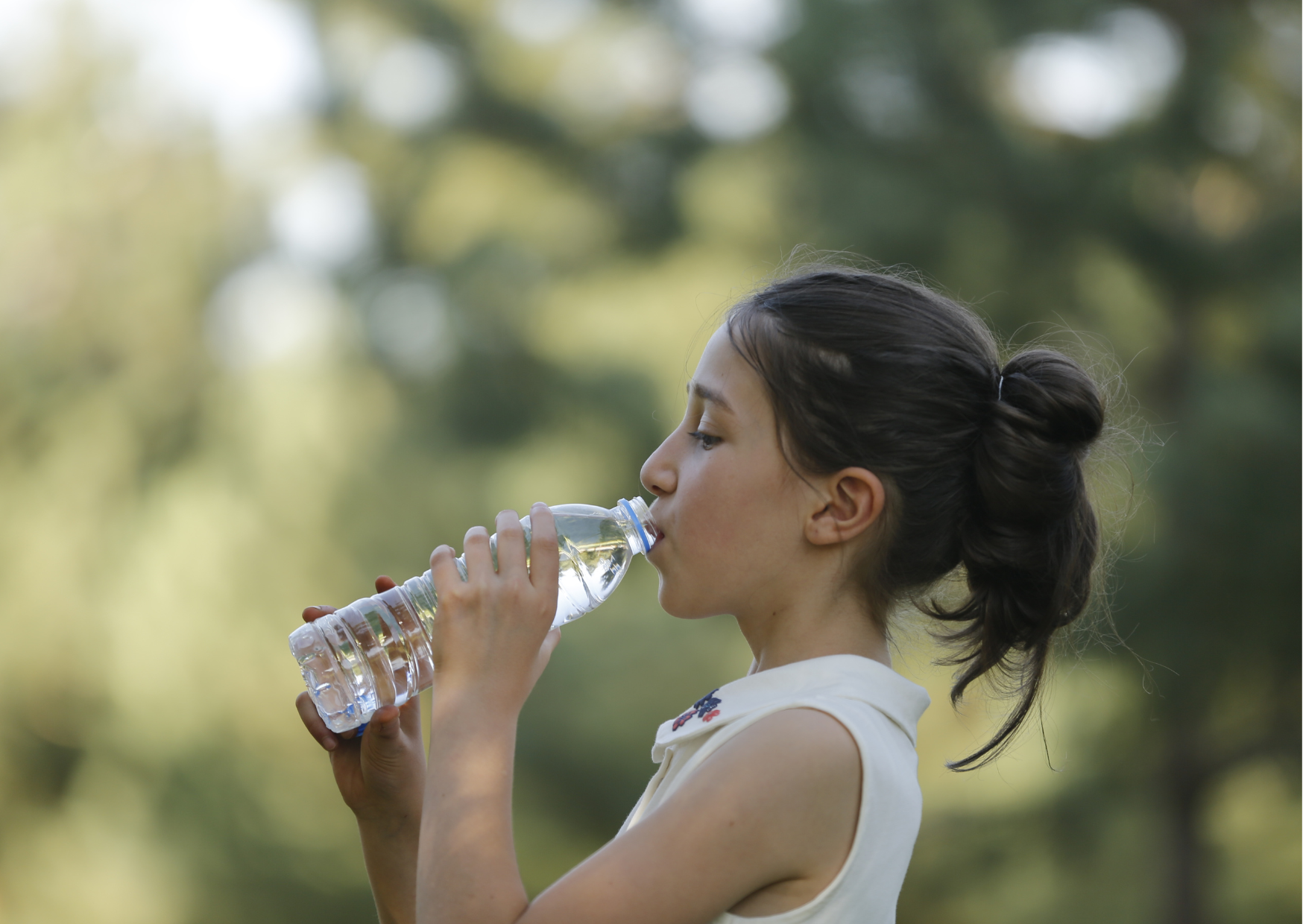
Here are a few ways you can incorporate the above foods into your children's diet:
- Scrambled eggs. Turn scrambled eggs into a nutrient-filled breakfast meal for your kids by adding spinach, broccoli, and cheese. [9]
- Yoghurt, nut butter, and berries: Stir some whole berries, plain yoghurt, and nut butter together to make a smoothie. Add some extra sweetness by sprinkling some dark chocolate on the mixture. [9]
- Vegetable smoothie. If your kids are having a hard time eating their vegetables, try incorporating them into fruit smoothies. You can try a smoothie with the following ingredients: oranges, spinach, plain yoghurt, strawberries, and bananas. [6]
- Salmon salad sandwich. Preparing yummy salmon salad for your kids is a good way of increasing their seafood intake. You can use it as a spread on whole-grain bread and top it with some fruits and vegetables for a balanced diet. [9]
- Peanut butter and jelly sandwich. As an all-time favourite for children, it's quite easy to make. It is filled with brain-building nutrients, especially when made with whole-grain bread. You can also use berries instead of using jam. [9]

Conclusion
Studies have shown that the foods listed above are particularly important for proper brain development and cognitive function for children.
It is, therefore, necessary to ensure that they are in your child's diet. You can use the sample recipes above or create your own, as long as they result in a well-balanced diet.







